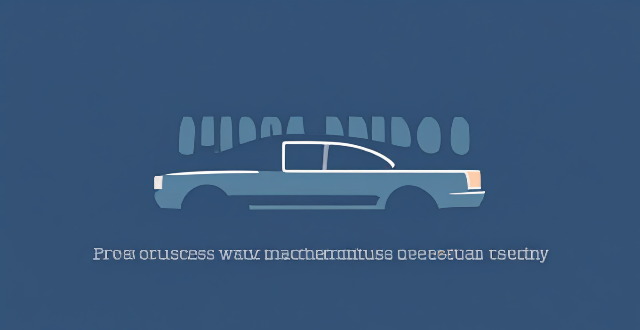The text discusses the pros and cons of buying a new versus used car. The advantages of buying a new car include warranty coverage, latest technology features, and a lower depreciation rate. However, new cars come with higher costs and insurance expenses. On the other hand, used cars offer lower prices, slower depreciation rates, and a wider range of options. However, they lack warranty coverage and may have hidden problems that require costly repairs. Ultimately, the decision to buy a new or used car depends on individual needs and preferences.

Pros and Cons of Buying a New vs Used Car
Buying a car is a significant financial decision that requires careful consideration. There are two options to choose from: buying a new car or a used one. Both have their advantages and disadvantages, which we will discuss in detail below.
Advantages of Buying a New Car
*Warranty*
One of the most significant advantages of buying a new car is the warranty that comes with it. Most new cars come with a manufacturer's warranty that covers repairs for a specific period or mileage. This can save you money on unexpected repairs and give you peace of mind knowing that your car is covered.
*Latest Technology*
New cars come equipped with the latest technology, including advanced safety features, entertainment systems, and connectivity options. These features can enhance your driving experience and make your car more comfortable and convenient to use.
*Lower Depreciation Rate*
New cars depreciate faster than used cars, but they start at a higher price point, so the actual dollar amount lost due to depreciation is lower. This means that if you decide to sell your car after a few years, you may get a better resale value compared to a used car.
Disadvantages of Buying a New Car
*Higher Cost*
The most significant disadvantage of buying a new car is its high cost. New cars can be expensive, and their value depreciates rapidly, especially during the first few years of ownership. This means that you could lose thousands of dollars in value within just a few years of driving your car off the lot.
*Higher Insurance Costs*
New cars often come with higher insurance costs due to their higher value and the fact that they are more attractive to thieves. This can add up to significant expenses over time, making owning a new car more costly than buying a used one.
Advantages of Buying a Used Car
*Lower Cost*
The most significant advantage of buying a used car is its lower cost. Used cars are generally much cheaper than new ones, making them an excellent option for people who want to save money or those who cannot afford to buy a new car outright.
*Slower Depreciation Rate*
Used cars depreciate slower than new cars, which means that they hold their value better over time. This makes them a good investment if you plan on keeping your car for several years or if you want to sell it later on.
*Wide Range of Options*
When buying a used car, you have access to a wide range of options, including different models, makes, and years. This allows you to find a car that fits your specific needs and preferences without breaking the bank.
Disadvantages of Buying a Used Car
*No Warranty*
One of the biggest disadvantages of buying a used car is that it does not come with a warranty. This means that if something goes wrong with your car, you will have to pay for repairs out of pocket. This can add up quickly and make owning a used car more expensive than buying a new one.
*Potential for Hidden Problems*
Used cars may have hidden problems that are not immediately apparent during the test drive or inspection. These issues can range from minor cosmetic damage to major mechanical problems that require costly repairs. It is essential to have a thorough inspection done by a trusted mechanic before purchasing a used car to avoid any surprises down the road.
In conclusion, both buying a new and used car have their advantages and disadvantages. It ultimately depends on your budget, needs, and preferences when deciding which option is best for you.